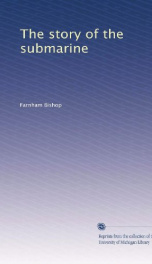our first war in mexico

Purchase of this book includes free trial access to www.million-books.com where you can read more than a million books for free. This is an OCR edition with typos. Excerpt from book: tion of many necessary articles and placed a very high duty on almost everything else, was now, with certain exceptions, to be applied to Texas. This impossible combination of a protective tariff with an almost utter lack of home industries was a direct legacy from colonial Spain, and a scholar and statesman like Sefior Alaman might well have paused before reviving it. He should have remembered how the dearth of Spanish goods had forced the Spanish colonists from Texas to Peru either to do without or to trade with foreign smugglers (see page 4). He should have remembered the tragic results of the spasmodic attempts of the Spanish authorities to stop this smuggling by savage attacks on the free-traders the blazing cities and sunken galleons that paid for the treacherous destruction of Francis Drake's and John Hawkins's trading fleet in the harbor of Vera Cruz; the sack of Panama by the buccaneers after they had been forbidden by the Spaniards to hunt the wild cattle of the West Indian islands and so turned to Spaniard-hunting; and the War of Jenkins's Ear. He should have realized that the American-born Texans and the coastwise skippers who supplied their wants were of the same fighting stock as Drake and the buccaneers, and that when the Texans needed new ploughs, which they could not buy in Mexico and were forbidden to import from the United States, it would take more than a few hundred half-breed Mexican conscripts scattered along the coast to suspend the law of supply and demand. The climax came when Colonel Brad- burn, the Kentucky-born commander of the Mexican post at Anahuac on Galveston Bay lost his temper after two years of constant bickerings, and in May, 1832, arrested and imprisoned without warrant seven prominent Texans to overawe the smugglers and their sympathizer...
Info about the book
Author:
Series:
Unknown
ASIN:
B0006BLVCY
Rating:
4.5/5 (1)Your rating:
0/5
Languge:
English
Users who have this book
Users who want this book
What readers are saying
What do you think? Write your own comment on this book!
write a commentif you like our first war in mexico try:
Other books by this author
Do you want to read a book that interests you? It’s EASY!
Create an account and send a request for reading to other users on the Webpage of the book!


